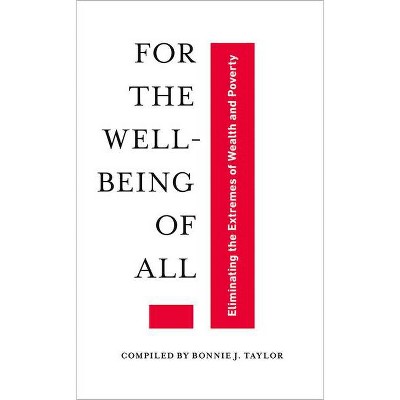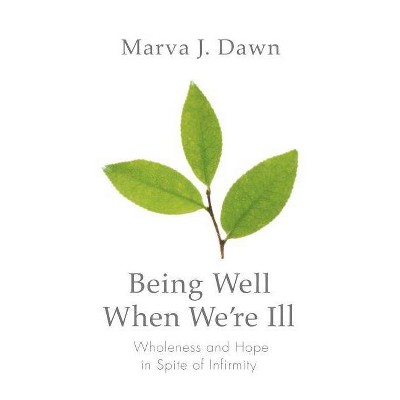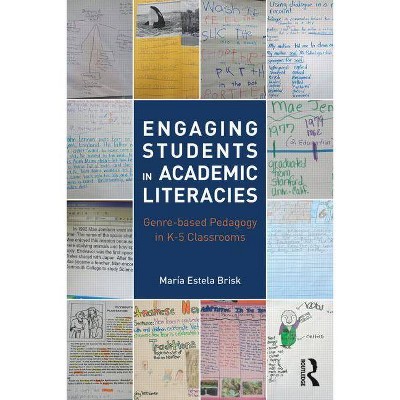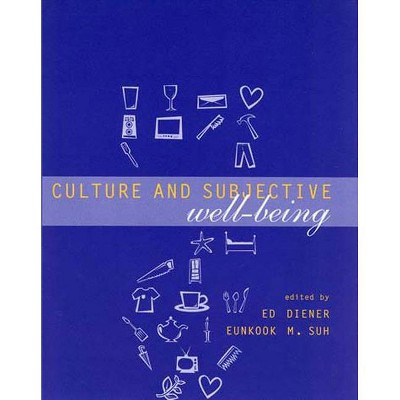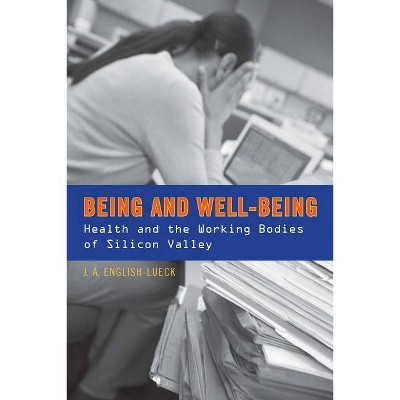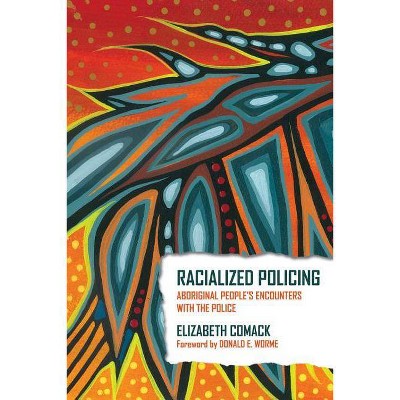Academic Well-Being of Racialized Students - by Benita Bunjun (Paperback)
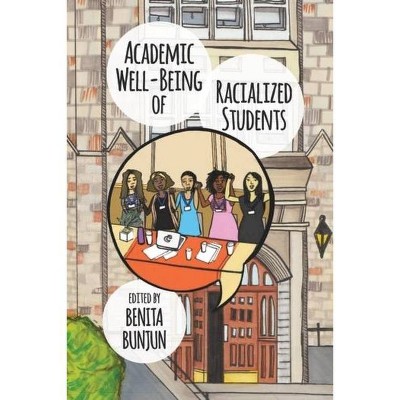
Similar Products
Products of same category from the store
AllProduct info
<p/><br></br><p><b> About the Book </b></p></br></br>"North American universities have a sordid history steeped in colonialism and racism. Racialized students, who would have once been forbidden from academic spaces and who still feel out of place, must navigate these oppressive structures in their educational journeys. Through the multiple genres of essay, art, poetry, and photography, this book intelligently examines the experiences of racialized students in academe. Though the contributors discuss the challenges they face, the book emphasizes the crucial connections that racialized students purposefully forge, which transform an otherwise hostile environment into a space of good relations, intellectual collaborations, community-building, and kinship: academic well-being. Lovingly curated by Dr. Benita Bunjun, this book's existence is a living example of mentorship, reciprocity, and resilience."--<p/><br></br><p><b> Book Synopsis </b></p></br></br>Canadian universities have an ongoing history of colonialism and racism in this white-settler society. Racialized students (Indigenous, Black and students of colour), who would once have been forbidden from academic spaces and who still feel out of place, must navigate these repressive structures in their educational journeys. Through the genres of essay, art, poetry and photography, this book examines the experiences of and effects on racialized students in the Canadian academy, while exposing academia's lack of capacity to promote students' academic well-being. The book emphasizes the crucial connections that racialized students forge, which transform an otherwise hostile environment into a space of intellectual collaboration, community building and transnational kinship relations. Meticulously curated by Dr. Benita Bunjun, this book is a living example of mentorship, reciprocity and resilience.<p/><br></br><p><b> Review Quotes </b></p></br></br><br>Every Canadian post-secondary instructor and professor teaching or researching with BIPOC students must read and reflect on this critically edited book. The deep significance and outcomes related to the safe spaces created by Dr. Bunjun's work with racialized students over more than two decades are evident throughout its chapters. The contributions of 15 authors offer searing stories and critiques of current racialized student pain and trauma within colonial academic institutions and multiculturalism steeped in colonialism and liberalism. It also provides many paths for readers to understand better and support student survival strategies linked to their wellbeing and resistance. Once I began reading it, I could not put it down. This work speaks to my soul.--Dr. Shelly Johnson (Mukwa Musayett), Canada Research Chair in Indigenizing Higher Education<br><br>I am honored that Professor Bunjun has invited me to reflect on the teaching and mentoring relationships that we both experienced together. Our relationship has lasted nearly twenty-five years. I applaud this very important anthology of scholarly and narrative manuscripts of her students and peers. These writings have found a unique space for self-representation and knowledge production in pursuit of repressed and subjugated truths that combine our embodied memories of our origins in the racialized class, caste, sexual, gendered and ethnic stratifications that we carry with us from locations of former colonies or dominions within overseas and territorial empires.--Dr. Yvonne Brown, Adjunct Professor, Department of Social Justice and Community Studies, Saint Mary's University, and author of Dead Woman Pickney: A Memoir of Childhood in Jamaica<br><br>This edited collection documents and makes visible what racialized students are experiencing in Canadian universities, including dealing with in-class micro-aggressions, yearning to be taught by full-time faculty members representing their own diverse backgrounds, witnessing the appropriation of ideas of non-white scholars by white scholars in academia, and unpacking how white-settler mentality is shaping their lives within Canadian post-secondary institutions. Initiatives, spaces and programs through which racialized students organize, support and mentor each other are also well highlighted, both as a way to show how empowerment and resiliency exist in the white-settler institution that is Western academia, and, implicitly, as best practices that Canadian institutions can adopt toward decolonization and equity, if they realize and adapt.--Jean Michel Montsion, Associate Professor, Canadian Studies Program, Department of Multidisciplinary Studies, Glendon College, York University<br><br>This timely collection highlights how BIPOC students rise to the challenge of building Indigenous worlds and anti-racist communities within the oppressive whiteness of the Canadian university. Educators have much to learn from BIPOC students about the ways in which the academy subjects them to the dictates of racial and colonial power. The survival strategies recounted here are deeply courageous and highly inspiring.--Dr. Sunera Thobani, author of Exalted Subjects: Studies in the Making of Race and Nation in Canada<br><p/><br></br><p><b> About the Author </b></p></br></br>Dr. Benita Bunjun is an Associate Professor at Saint Mary's University in the Department of Social Justice and Community Studies, where she coordinates the Racialized Students Academic Network. Her research examines organizational and institutional power relations with a focus on colonial encounters within academic spaces. Dr. Bunjun is deeply committed to the academic well-being of Indigenous, Black and students of colour and to her responsibilities and responsiveness regarding the complexity of Indigenous-settler (of colour) relations and South Asian and Black Diaspora relations.
Price History
Cheapest price in the interval: 25.49 on October 22, 2021
Most expensive price in the interval: 25.49 on November 8, 2021
Price Archive shows prices from various stores, lets you see history and find the cheapest. There is no actual sale on the website. For all support, inquiry and suggestion messages communication@pricearchive.us
